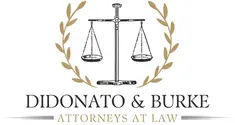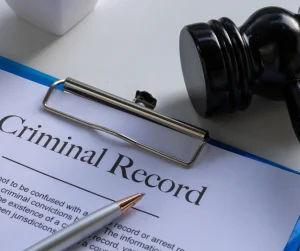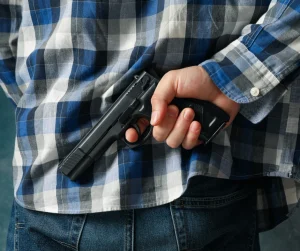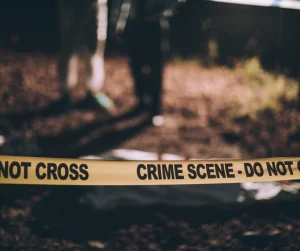At DiDonato & Burke Law Firm, we understand how much is at stake in a criminal case. The outcome often depends on more than just physical evidence or legal arguments—it often depends on whether the jury believes the people testifying. Witness credibility plays a central role in how the story of a case is told, and whether a person is found guilty or goes free.
Philadelphia criminal defence attorney Thomas F. Burke has represented clients facing serious charges, many of whom were up against unreliable or biased witnesses. In those situations, uncovering the truth means challenging not just what was said, but how believable the witness really is.
What Is Witness Credibility?
Witness credibility refers to how trustworthy and believable a witness appears during a trial. The court doesn’t just listen to what a person says. Judges and jurors are also paying attention to how they say it, whether their story has changed over time, and whether their version of events fits the rest of the evidence.
A credible witness is someone who is consistent, honest, and free from bias. Someone whose testimony lines up with the facts. On the other hand, a witness who seems unsure, changes their story, or has a motive to lie may not be believed—even if they seem confident.
Things that affect a witness’s credibility include:
- Whether their story has remained consistent from the start
- Whether their version of events matches physical evidence
- If they have a connection to the accused or the victim
- Any personal interest in the case’s outcome
- Their behavior and ability to answer questions clearly in court
Credibility matters in every trial. When it’s lacking, it opens the door for reasonable doubt.
Eyewitness Mistakes Are More Common Than You Think
People tend to think eyewitnesses are always reliable, but research and real-life cases tell a different story. Memory is fragile. Under stress, it’s easy for someone to mistake what they saw, especially if the incident happened quickly or in poor conditions.
We’ve seen cases where a witness confidently identified the wrong person. In some situations, their view was obstructed, the lighting was bad, or they were under pressure. Unfortunately, those mistakes can still lead to charges.
That’s why we never accept an eyewitness account at face value. We examine how and when the witness saw the event, what else was going on, and whether their memory was influenced in any way. When necessary, we bring in experts to explain how memory works and where it can go wrong.
Cross-Examination Reveals the Truth
A big part of our work as defense attorneys is cross-examining witnesses in court. This is the chance to ask direct questions and test how reliable a witness’s story really is. Sometimes people lie. Other times, they’re simply mistaken. Either way, cross-examination helps reveal the truth.
During questioning, we look for:
- Gaps or changes in the story
- Contradictions with earlier statements
- Signs of bias or pressure from others
- Emotional responses that suggest discomfort or dishonesty
Even one contradiction can raise questions in the minds of jurors. It’s our job to make sure they see where the testimony breaks down and why it matters.
Police Testimony Isn’t Always Perfect
Many cases include testimony from law enforcement officers. While juries may see officers as reliable, that doesn’t mean their testimony is always accurate or fair. Officers can misremember facts, make assumptions, or rely on notes written after the fact.
Mr. Burke personally reviews every report and compares it with body cam footage, surveillance video, and any other available records. If there’s a difference between what the officer says and what actually happened, he can bring it to light. His role is to hold everyone in the courtroom accountable—including those in uniform.
Why Credibility Can Decide a Case
When a case comes down to one person’s word against another’s, credibility becomes everything. If the jury believes a witness is trustworthy, their words carry weight. But if doubts surface, that alone can be enough to prevent a conviction.
This is why we spend time understanding every witness’s background, statements, and behavior. If someone is lying or exaggerating, we find out. If a witness has a reason to be biased, we uncover it. We know that even the smallest detail can make a big difference when your future is on the line.
What You Can Do if a Witness Lies About You
If you’re facing criminal charges and believe that someone gave false or misleading testimony, don’t wait to speak up. Your freedom and reputation are too important.
Our legal team will investigate every aspect of the testimony. We’ll review police reports, interview other witnesses, and gather evidence to expose false statements. In some cases, we’re able to bring in experts to challenge the reliability of a witness’s memory or account.
Fighting for the Truth in Every Case
At DiDonato & Burke Law Firm, Philadelphia criminal defense attorney Thomas F. Burke believes in justice—but justice can only happen when the truth is revealed. That means challenging every part of the prosecution’s case, especially when the evidence rests on the word of someone who shouldn’t be trusted.
With over 30 years as an attorney in Philadelphia, Thomas F. Burke has built a reputation for thorough, aggressive criminal defense. He takes the time to understand every detail, prepare strong cross-examinations, and bring the truth forward when the stakes couldn’t be higher.
He knows how to handle witnesses who twist the facts. He’s done it in court, and he’s ready to do it again for you.
Accused in Philadelphia? Don’t Leave Your Defense to Chance.
If you or someone you care about is facing criminal charges in Philadelphia and witness credibility is a concern, contact Thomas F. Burke at DiDonato & Burke Law Firm today. He’ll personally review your case, protect your rights, and fight to make sure the full story is told in court.
Call us at (215) 567-1248 or schedule a private consultation. Your defense begins with the truth—and we’re here to make sure it’s heard.



